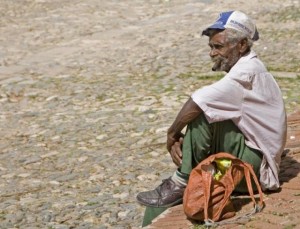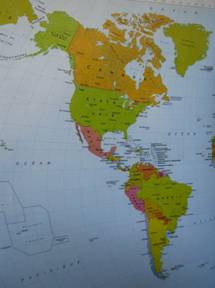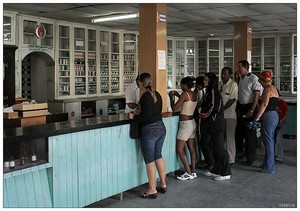
According to opponent Sonia Garro, intelligence officers let her know that they may open a court case against her and six more women who several times organized peaceful marches of protest on the streets of Havana.
Garro commented that in one of the interrogations, agents of the State Security told her that “President Raul Castro himself wants to know who is the woman organizing protests on the streets. It may be possible that we won’t put all seven in prison, but for sure the leader or leaders will end up in a prison”.
Like the rest of the group, Sonia belongs to the Ladies supporting the Ladies in White. She, also, is a member of an Afrocuban independent association Led by Mercedes Fresneda, who is another of the ladies threatened with prosecution if they insist on engaging in anti-government protests.
Garro is one of the few opponents who is dedicated to do communitarian work in the island. Since 2007 she has led a project to help poor children, without taking into consideration the political affiliation of their parents. The project is operating where she lives, in the Los Quemados neighborhood, in the Marianao municipality in Havana,Cuba
Graduated as a nurse, in 2008 she was terminated from her job because of her political activities against the regime. She is the mother of a 14-year-old daughter and she is married to another dissident, Ramon Alejandro Munoz, who as an answer to the beatings given to Sonia by the police, in May of this year, chained himself on the roof of his home, machete in hand, yelling anti Castro slogans. Still today he goes out to the street with one arm chained, as a protest against police brutality.
“I feel harassed by the State Political Police. In front of my window there are constant repudiation rallies of mobs egged by the authorities. I received severe beatings and I suffer from a right knee contusion. On Thursday June 9, 2011, at a protest at the Anti-Imperialist Stage paying respect to Orlando Zapata, we were battered. They arrested me and kept me for two days in the police precinct of Aguilera, in the municipality of 10 de Octubre. The other six ladies were also arrested in different precincts. They opened a case against us for insult to patriotic symbols, disrespect and disorderly conduct”, Garro points out sitting on a ramshackle sofa.
The seven Cuban women who monthly go out to the street asking for democratic changes are Mercedes Fresneda, Ivonne Malleza, Niurka Luke, Yaquelin Bonne, Rosario Morales, Leidi Coca and Sonia Garro. Recently and separately, they have been taken to Cuban Intelligence’s “visiting house,” in order to intimidate and scare them.
“They offer you everything. From improving your way of life to becoming one of their agents. Officers of Cuban Intelligence with ranks of Lieutenant Colonel and Major talk with us. In charge of this harassment is a man called Tamayo, second chief of Section 21, the department dedicated to watch and to repress the opponents”, explain Mercedes Fresneda.
Garro adds that she has been threatened by the political police that if she continues with the street marches, her daughter will not longer continue studying.
These women promised to keep on in a public way expressing their grievance about the ways of the Cuban government. They believe it is their right. All of them have in common that they are poor, almost all are black or mestizo, and they were born with the revolution.
They are longing for profound and serious changes in the policies of their country. They are rooting for a democracy. And they shout for it.
Translated by Adrian Rodriguez
June 22 2011

 Being old in Cuba is a problem. Check this, if a young family have to work miracles to bring three meals a day to the table, buy clothing for their children and try to make money from who knows where to repair their shack, you can imagine how hard can be for an elder. It becomes harder if you are black.
Being old in Cuba is a problem. Check this, if a young family have to work miracles to bring three meals a day to the table, buy clothing for their children and try to make money from who knows where to repair their shack, you can imagine how hard can be for an elder. It becomes harder if you are black. There was a trend in Cuban born some years ago that redefined the concept of film: el murcinema or murcinélago. In other words, “bat-movie-goer.”
There was a trend in Cuban born some years ago that redefined the concept of film: el murcinema or murcinélago. In other words, “bat-movie-goer.”

![100_1676[1]](http://www.TranslatingCuba.com/images/Silvio/100_16761.jpg)

 Every time that Niurka needs vitamin C or an albutamol (albuterol) inhaler for her asthma, she knows where to find it. First, before asking Fermin, a medicines peddler, she tries to get it by slipping a 20 pesos bill over the closest state-owned pharmacy counter.
Every time that Niurka needs vitamin C or an albutamol (albuterol) inhaler for her asthma, she knows where to find it. First, before asking Fermin, a medicines peddler, she tries to get it by slipping a 20 pesos bill over the closest state-owned pharmacy counter.